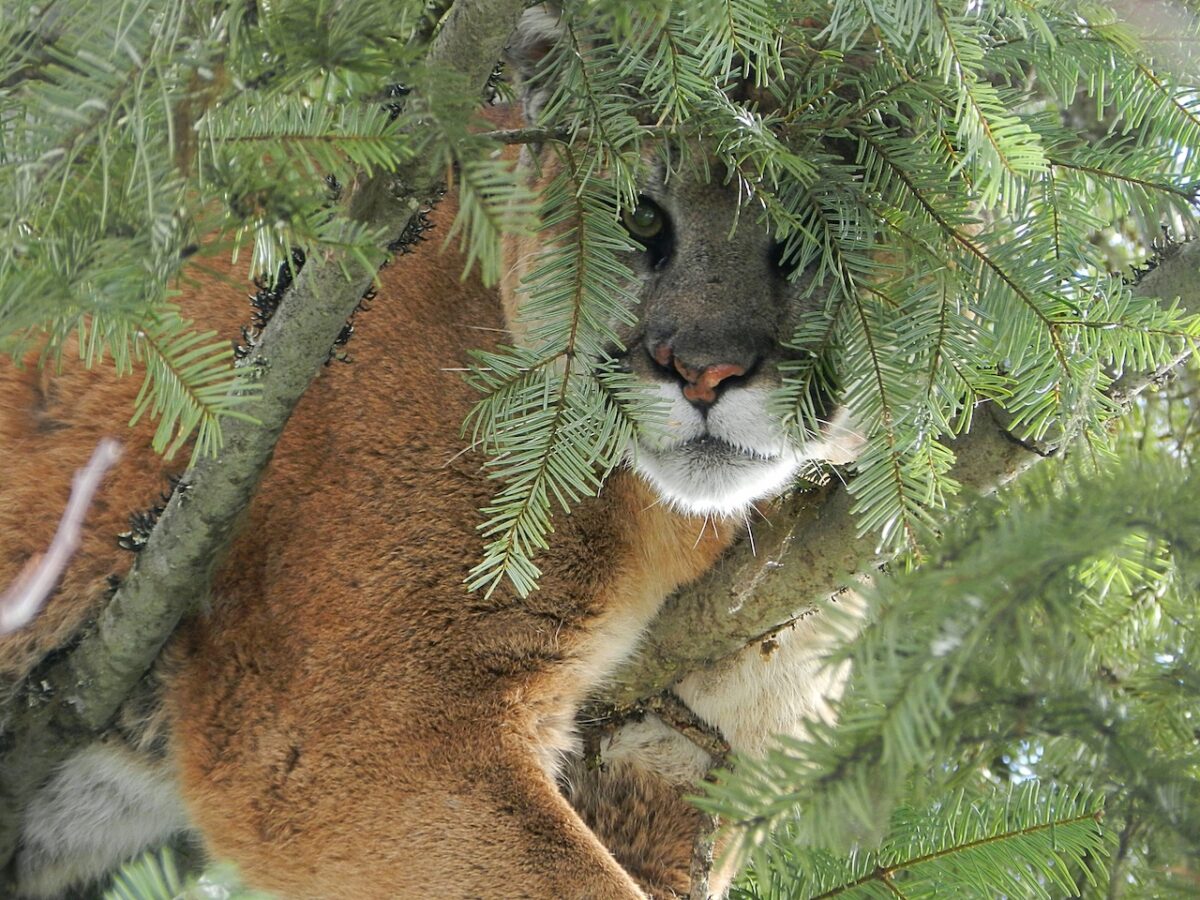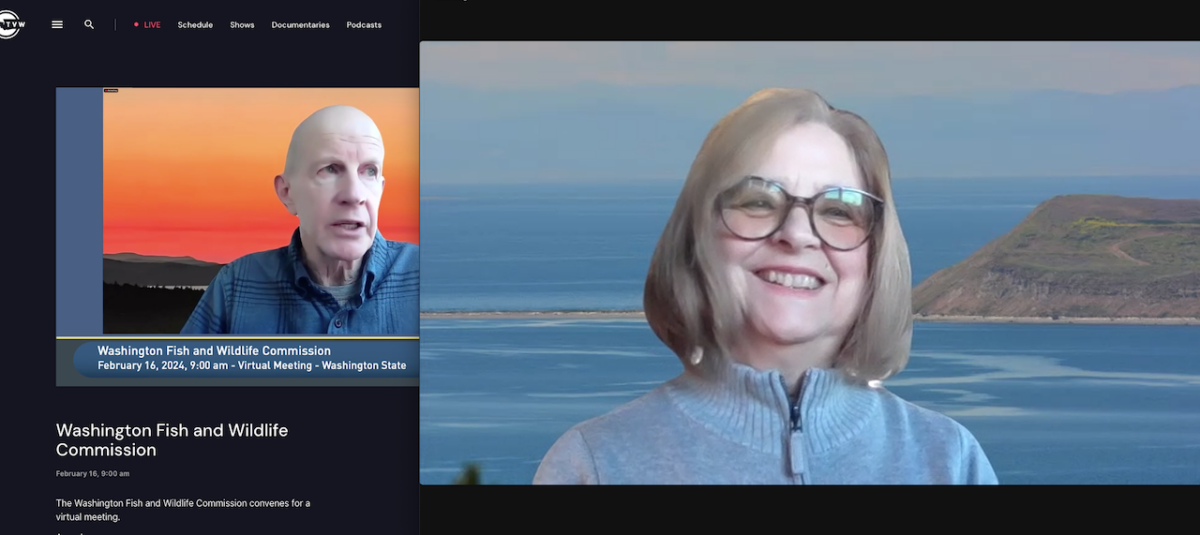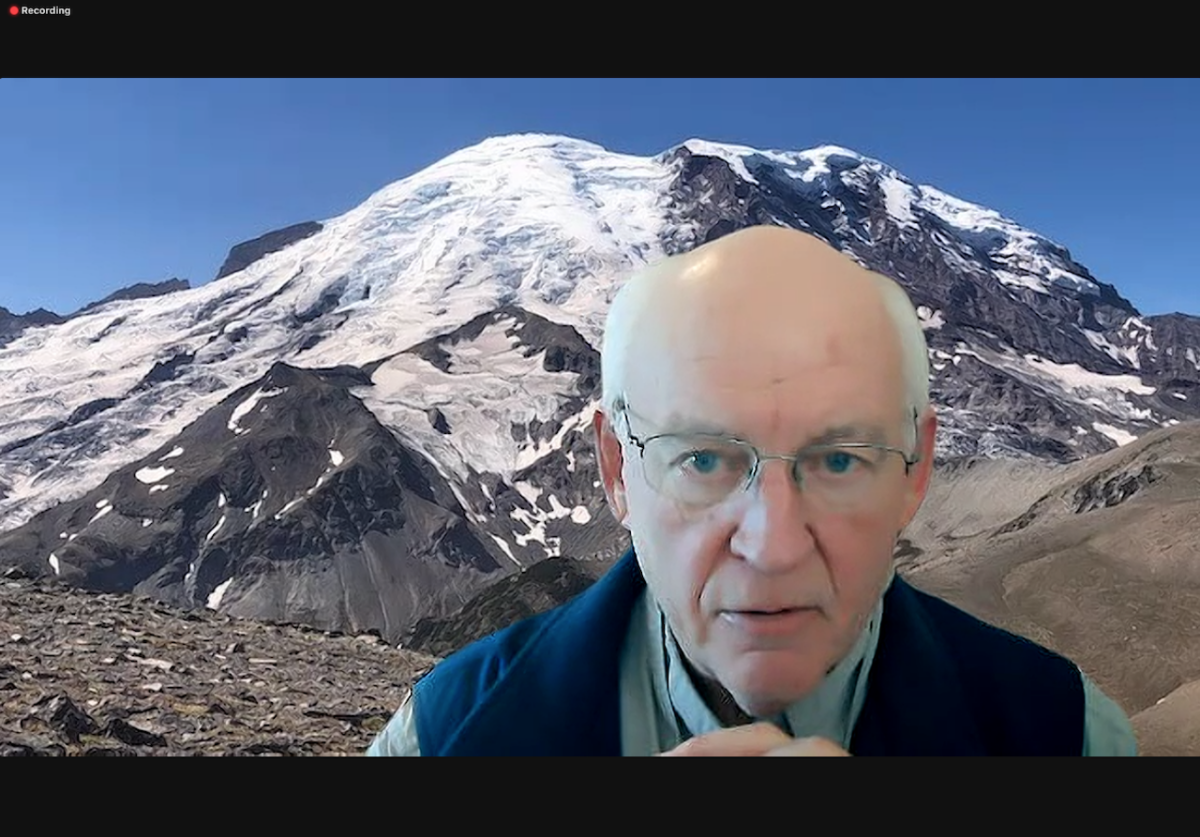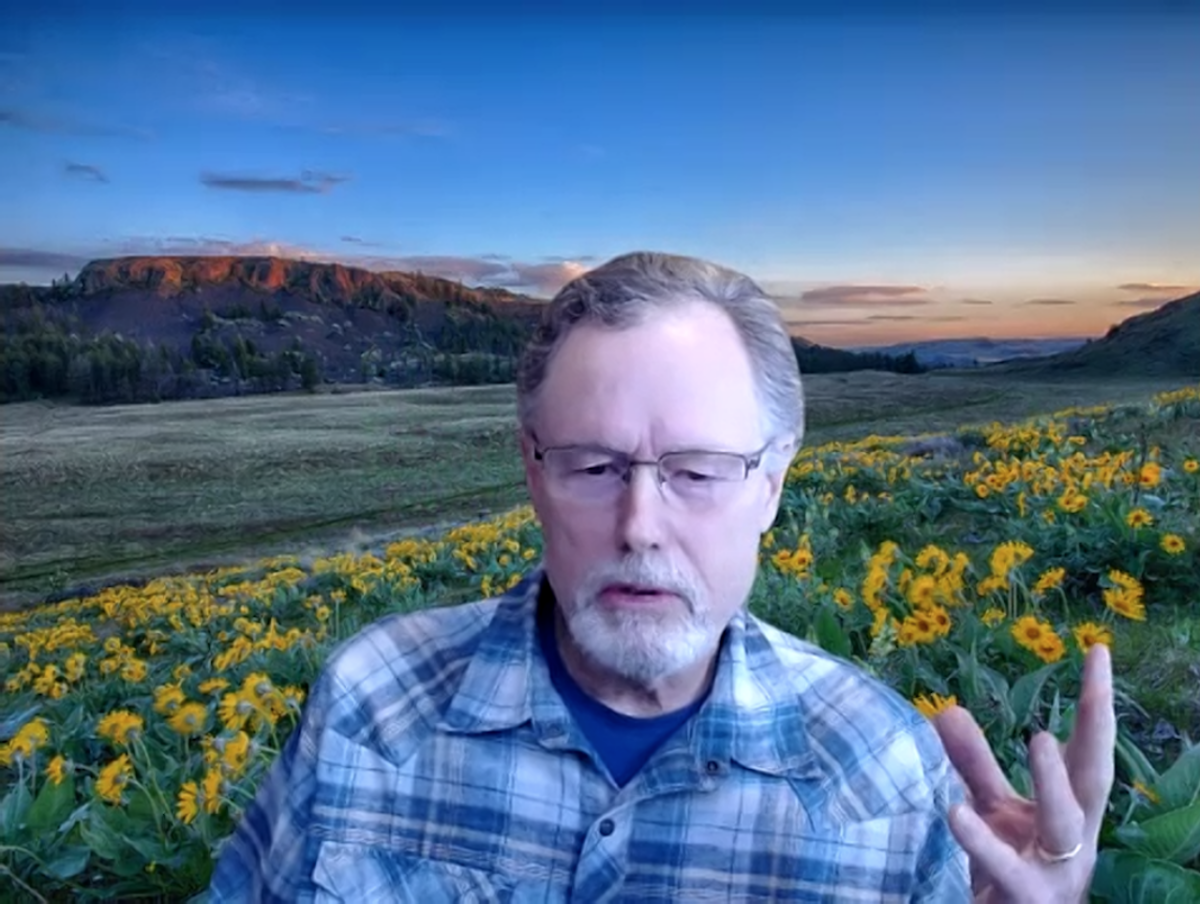
WDFW Commission Talks Cougar Rulemaking
The Washington Fish and Wildlife Commission did not make a decision today on the scope and timeline of beginning rulemaking around cougar hunting regulations, as had been scheduled, but will meet next month on emerging lion science.

The eight commissioners in attendance reached a consensus to bring WDFW cougar researchers back in again, this time at their March meeting to hear about new information expected to become available for an initial chin-stroking.
Meanwhile, it appears that the commission has settled on splitting out cougar and bear rulemaking rather than doing it all at once.
The commission is beginning to mull future hunting regulations for both species after voting 7-2 last December to accept a petition to begin new rulemaking. Advocacy groups want WDFW to more than roll back 2019 and 2020 policy changes made by the commission at that time.

During today’s meeting, broadcast on TVW and Zoom, Commissioner Lorna Smith of Port Townsend, chair of the Wildlife Committee summarized cougar rulemaking topics she and other committee members talked over on Monday and recommended WDFW begin moving forward on.
Those include adding a sunset date to mountain lion seasons during the three-year season setting process so as to periodically review the rules. Smith pointed to increasing conflict removals and hunting guidelines being exceeded in some units.
She also said the committee recommended moving forward on including subadult cougars in harvest limits; counting all sources of human-caused cougar mortality when considering hunting guidelines; combining the general September-December season with the guideline-controlled late January-April season into one hunt; and cutting off the April portion of the late season.
Two other possible rule changes did not move forward, she indicated.
For her part, Smith wanted to get new regs in place for the start of this fall’s season. Her timeline included WDFW filing what’s known as a CR-102 in March to solicit public comment and then holding a commission public hearing and decision at a June meeting.
That would result in a big asterisk in the cougar section of the 2024-25 big game regulations pamphlet, which goes to press in mid-April, hunting managers advised the commission.

I don’t recall too many “minority reports” being issued by commissioners during my time covering them, but Jim Anderson of Buckley had one today. A hunter, he said the Wildlife Committee did not have a consensus on the scope of cougar rulemaking, and that there was not a good process in place moving forward.
Anderson said the commission needed to step back and establish a doable process that allowed them to figure out the “real issues so that when rulemaking is done, it’s targeted on things that make a difference, not just things that somebody thinks might make a difference, and you do that with your professional staff.”
He said this particular rulemaking is being based around the petitioners’ perspective, but that county governments, landowners and hunters, along with science, needed to be brought into the process too.
Anderson suggested targeting the 2025-26 season to get new cougar rules in place, arguing it would benefit the commission to base that on solid information, transparency and not being rushed. He said the citizen panel undermined itself by not having a schedule.
Smith pointed back to the petition and said WDFW staffers had already been “in agreement” with parts of it.
They may have been in agreement, but agency honchoes also recommended the petition be denied as they incorporated similar elements into their own longer-term planning. Dealing with the petition would add to an already large workload around updating the statewide Game Management Plan, they said. But in the end, the commission yet again disregarded their professional judgment.

Commissioner John Lehmkuhl of Wenatchee was in agreement with Anderson’s timeline and said the push to get cougar rules in place for 2024 sounded something like an “emergency rule.”
“I really don’t see that emergency. I don’t think these populations are going to be endangered or their populations are going to plunge if we wait till 2025,” he said.
Currently, 43 of 49 cougar management units are open for hunting, having not yet met their late season guidelines, and the six that have are closed for the rest of the season.
In their rulemaking petition, Washington Wildlife First, Center for Biological Diversity, HSUS, Mountain Lion Foundation, Predator Defense, Coexisting with Cougars in Klickitat County, et al, claimed the hunting rule changes had “significantly” impacted cougar as well as bear numbers, but WDFW biologists and managers indicated populations are stable at the statewide level, with only limited areas of concern around harvest, and they would not be harmed by holding off a year or two on new regs.
Contrasting verifiable population issues with Blue Mountains elk seen in recent years – which Smith dragged her feet on addressing – Commissioner Molly Linville of Douglas County said she didn’t see a cougar management problem.
“It has not been identified to me,” Linville said, and added that time would be better spent updating the eight-and-a-half-year-old statewide Game Management Plan.
With Commissioner Melanie Rowland and her potential fifth vote absent from the meeting, Chair Barbara Baker of Olympia proposed that the commission set aside time in March to hear from WDFW on new population modeling that is expected to come out then.
Eric Gardner, the agency’s Wildlife Program director, characterized that and new bear science coming out in May as research that will be seeing “the light of day” for the first time and thus subject to some discussion.
Baker said she was looking forward to what WDFW scientists had to say and it would help answer questions “we’re sitting here on a Friday morning … speculating about.”
Before asking for a nod one way or the other from the full commission on how to proceed, Commissioner Tim Ragen of Anacortes spoke to the “audience” watching along. He said the idea that the commission was bent on reducing or eliminating hunting was incorrect.
“What we’re trying to do is ensure that we have healthy bear and cougar populations and that may require sometimes some restrictions or whatever, but we have to make sure that we are monitoring and assessing the status of those populations to ensure that they’re healthy not only for us but for future generations,” he said.
I don’t think anybody’s saying don’t assess the status of any wildlife population. Please do, and how.
I think what we’re saying is enough with the rush-rush-rush and listen to your staff the first time, they might know what the hell they’re talking about and it might save everyone some work and time.
Instead, we get today’s spun wheels.
